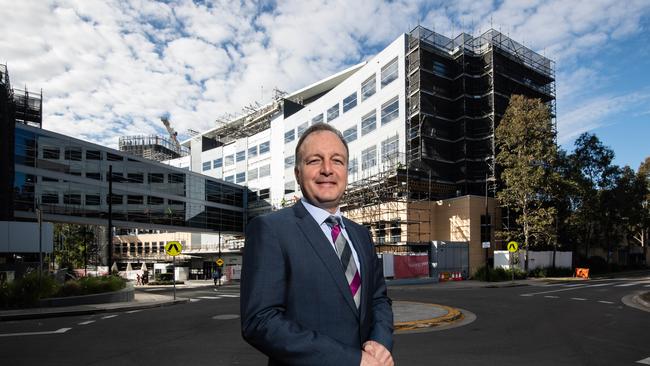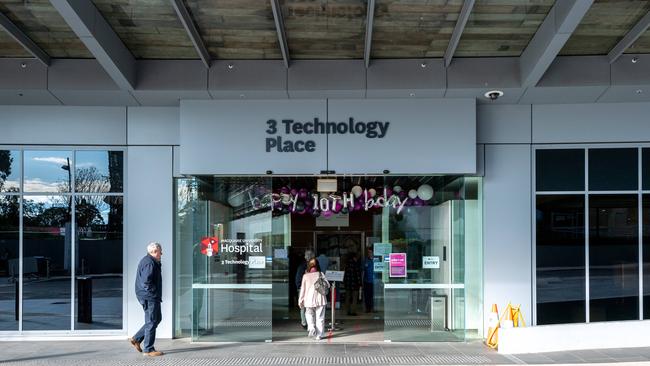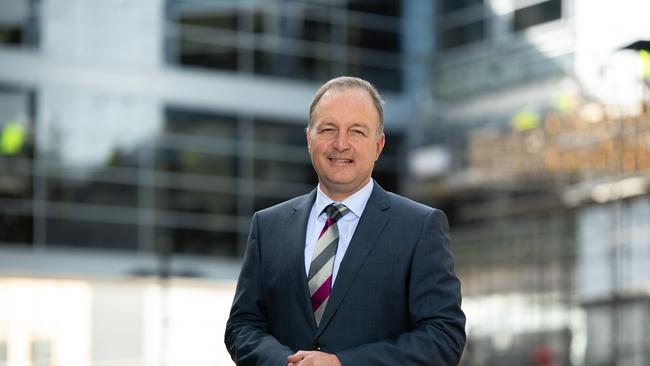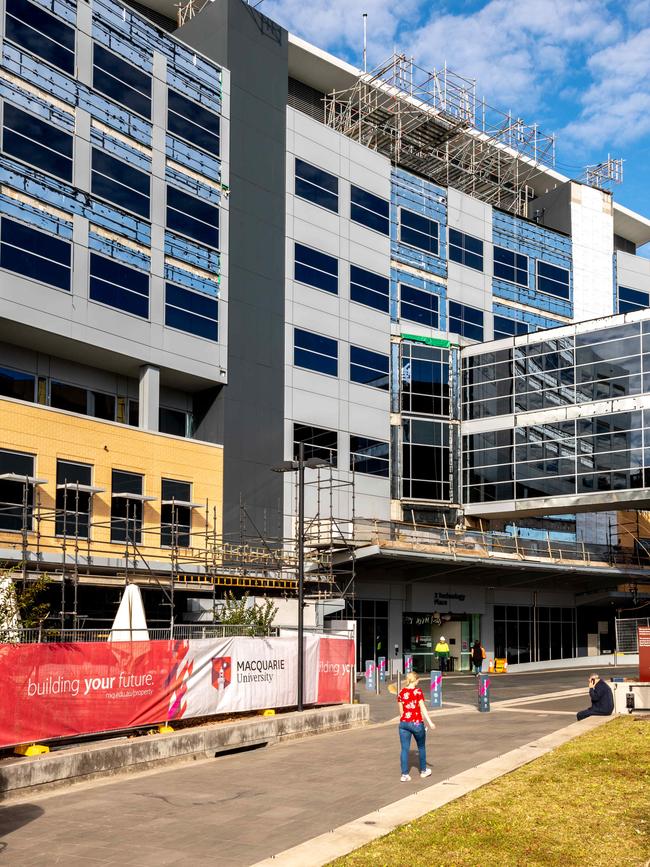Macquarie University Hospital: Walter Kmet announces plans on 10th birthday
Australia’s only private university-led hospital Macquarie University Hospital has celebrated its tenth anniversary – with its CEO announcing big plans for the coming years.

Northern District Times
Don't miss out on the headlines from Northern District Times. Followed categories will be added to My News.
Australia’s only private university-led hospital has celebrated its tenth birthday with the chief executive stating he wants to make it renowned on a global scale.
Macquarie University Hospital’s chief executive officer Walter Kmet said he’s very “excited” and proud to see everything the hospital has achieved over the past 10 years.
Despite still working hard during the COVID-19 pandemic, staff at the hospital were treated to a barbecue and special awards were handed out at the hospital’s 10 year birthday on Friday.

Mr Kmet, who is an adjunct associate professor, said 10 years on and the hospital’s model was still “unique.”
“It’s still the only private university-led hospital in Australia,” he told The Northern District Times.
The hospital is a training ground with Macquarie University medical students at onsite lecture rooms and anatomy labs.
He said the current COVID-19 pandemic has also given more opportunities for the medical students to work in clinic and telemedicine.
“An interesting sideline to the pandemic is that the students have changed the way they worked. We have introduced student-led clinics where students are integrated to manage patient care.”

For him, the hospital’s achievement was having a university-led, high quality and not for profit model that has “survived” after being Australia’s first in 2010.
He said what set Macquarie University Hospital apart is its ‘heal, learn, discover’ approach.
“We want to ensure we have research and university activities associated with the hospital but also having teaching and training of medical and physiotherapy students,” he said.

Mr Kmet, who has been the CEO since early 2019, said he was proud to see the hospital achieve “groundbreaking” and “innovative” work in areas such as structural heart and cancer.
The hospital was an early pioneer in TAVI (Transcatheter Aortic Valve Implantation) which gives patients with a specific heart valve disorder a lifesaving and minimally invasive heart procedure.
“The TAVI program part of the structural heart program is one of the hospital’s leading innovations in Australia,” Mr Kmet said.
In the next five years, the hospital is set to roll out a series of new offerings including an integrated cardiology and respiratory medicine service, a new day surgery centre and three new cardiology suites.
“This is a period of even more greater development,” he said.
Mr Kmet said his vision for the hospital is to be recognised on a world scale in the next 5-10 years.
“We want to be recognised as one of the leading university teaching hospitals in the world.”
Yet at the same time he said they were still committed to providing high quality services for the community with the hospital’s own GP practices on site.
“Providing for our local community is still really important.”
Top medical achievements at Macquarie University Hospital
- Da Vinci Robotic surgery program: Macquarie University Hospital has the most extensive Robotic Surgery Program in the country.
- Osseointegration surgery: In 2018, Macquarie University Hospital surgeons performed a world-first smart limb procedure for a quadruple amputee, using a pioneering procedure that gave the patient two new mind-controlled limbs.
- Cutting edge in heart surgery: Macquarie University Hospital was the first private hospital in New South Wales to conduct Transcatheter Aortic Valve Implantation, or TAVI, and the first in the southern hemisphere to offer a full TAVI program to support patients undergoing the procedure.
- Neurosurgery: The Macquarie University Neurosurgery Unit is one of the largest academic neurosurgery groups in Australia. It includes nine neurosurgeons and a dedicated neurosurgery research laboratory. The unit has subspecialty interests in vascular neurosurgery, spinal surgery, tumour surgery, and radiosurgery.
